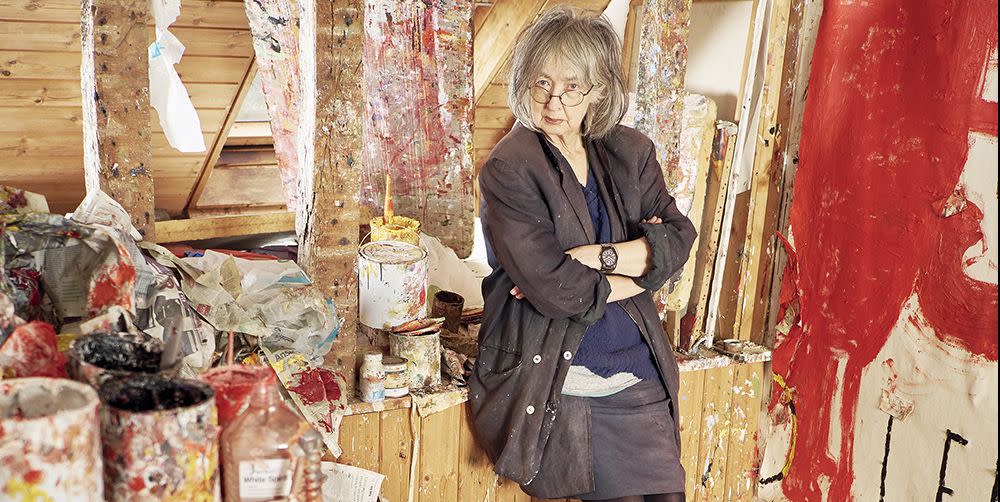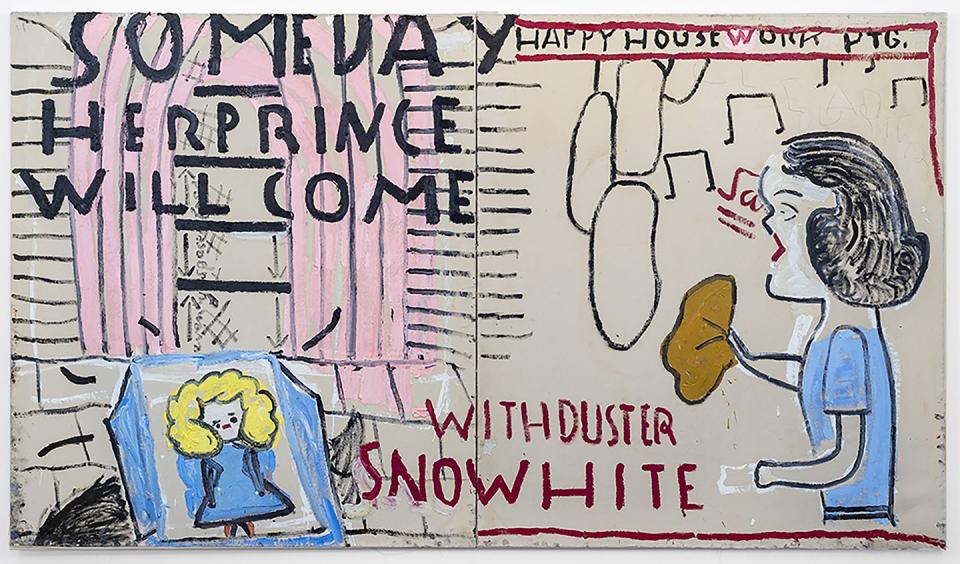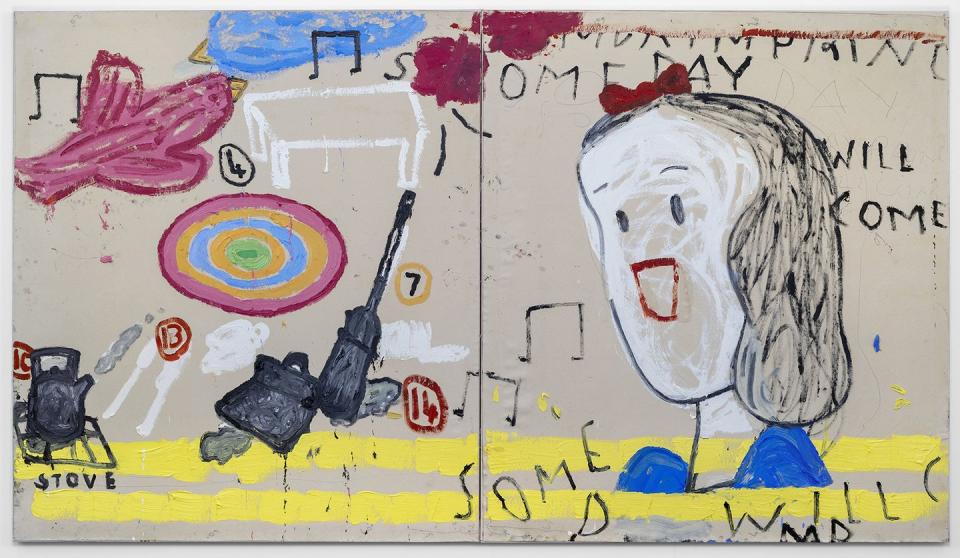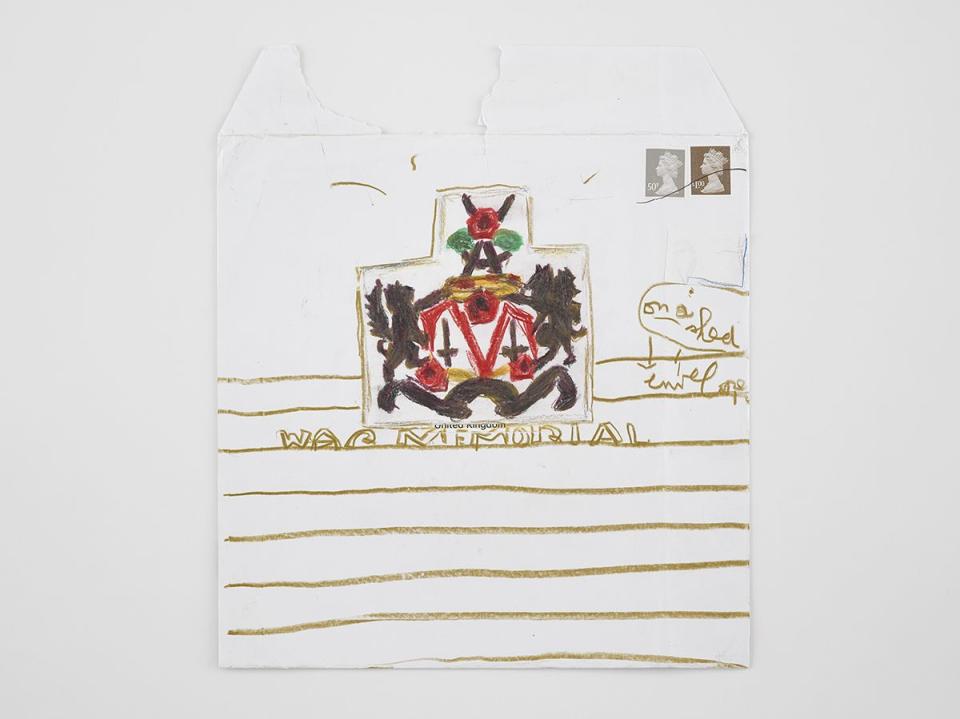Why Rose Wylie Wants to Ditch Canvas for Architecture

Rose Wylie, the 86-year-old British painter, isn’t exactly a newcomer. Exhibitions of her work have been mounted at museums around the world—including the Tate Britain and Space K in Seoul—and she’s won prestigious awards including the John Moores Painting Prize and the Royal Academy of Arts’ Charles Wollaston Award. But despite her experience and accolades, Wylie’s still capable of being a first timer; she’s about to be the subject of her first ever solo U.S. museum show, at the Aspen Art Museum through June, and this week she’ll make another American debut at The Gallery at Windsor, in Vero Beach Florida.

Her exhibition there, Rose Wylie: Let It Settle (open January 28 through April 30) is comprised of a collection of her witty, colorful paintings and drawings that touch on ideas of history, pop culture, royalty, and the artist's own autobiography. It’s the latest exhibit to come out a partnership between The Gallery at Windsor and The Royal Academy of Arts that brings noted Royal Academians to the gallery and has previously included the likes of Sir Michael Craig Martin, Peter Doig, and Ed Ruscha.
Here, Wylie opens up about her process for our peek inside the habits of a creative mastermind.
How do you prepare yourself to be creative; what’s your ritual?
I don't prepare to work. I just sort of live. Suddenly I’ll get an idea and then I work with that. So, I don't have a ritual.
What place is most conducive in which for you to work?
My studio, in my house near Faversham in Kent. It's very convenient, it's heated, it's got good windows, and I can work in it without feeling responsible to the room. I live here and I work here. And the whole thing comes together.

What one element is absolutely necessary for your process?
It's my room. been working in it for 50 years and I'm embedded in it. It's got all my stuff. I've got tins and oil paint, brushes. My staple gun with my pliers. You know, my tools. My scissors, my Stanley cutter, my bits of canvas. Everything's there.
At what time of day do you prefer to work?
Often late. I put off working during the day—unless I'm actually painting something, then I can start earlier—and then I go on into the night. I get up late and I work late. So, it switches around that way.

What do you most often do to procrastinate?
I might just walk around, go and look at the field at the bottom of the garden. I quite like that; I like the view from the garden. Or I might start preparing food for the evening or fold up sheets.
What’s your best trick for overcoming a block?
I wait and go on procrastinating. You sort of hang about and then you try to go and draw something completely different. That can help.
What’s your favorite creation thus far?
I usually like the piece of work that I've just done most. And at the moment I've just done a painting with some figures which look quite primitive. That painting at the moment is the thing that obsesses me. I like looking at it. It's almost folk art.

What’s your dream project?
I'd really like to have made up one of my figures very big, 80 feet tall or something, but flat like a jigsaw puzzle cutout and translated onto bronze. I’m thinking a building by Zaha Hadid; I’d love that.
What do you hope your creative legacy will be?
I just hope that young artists will be able to see the work in museums, in books, and in reproductions and they'll be able to exchange and debate with me, like students debating with Cézanne. That's what I would like.
You Might Also Like

